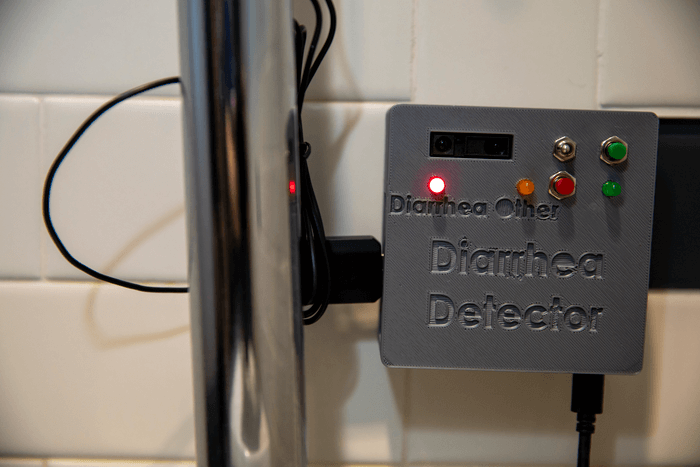NASHVILLE, Tenn. — A smart toilet has been developed that could detect the warning signs of various bowel diseases by listening to the sounds you make on the toilet.
Researchers from the Georgia Institute of Technology explain that the device comes with a sensor that picks up the sound of users as they poop or the noise of them passing gas. The device is linked to an AI (artificial intelligence) system that classifies the bowel movements.
In tests, it identified signs of cholera and other chronic diseases, offering hope of treatment starting at the earliest opportunity — before symptoms even appear.
“The hope is that this sensor, which is small in footprint and noninvasive in approach, could be deployed to areas where cholera outbreaks are a persistent risk,” says Maia Gatlin, an aerospace engineer at the Georgia Tech, in a media release.
The computer neural network looks for subtle changes in the noise made when someone defecates, urinates, or passes gas. The team collected hours of audio and video samples from healthy and unwell patients to establish the formula.

They transformed each into a spectrogram, which is essentially an image of the sound. Different events produce different features. For example, urination and defecation create a consistent and singular tone, respectively. In contrast, diarrhea is more random.
Study authors fed the scans into their algorithm, which learned to rank them. The toilet’s performance was challenged against data with and without background noises. This ensured it was learning the right sound features, regardless of the sensor’s environment.
“The sensor could also be used in disaster zones (where water contamination leads to spread of waterborne pathogens), or even in nursing/hospice care facilities to automatically monitor bowel movements of patients. Perhaps someday, our algorithm can be used with existing in-home smart devices to monitor one’s own bowel movements and health!” Gatlin explains.
Cholera is a leading cause of death worldwide
The Georgia Tech team plans to gather real-world acoustic data so that their machine learning model can adapt to work in a variety of bathroom environments.
Cholera is a bacterial disease that causes diarrhea. Up to four million cases are diagnosed each year worldwide, resulting in about 150,000 deaths. It’s an acute problem in parts of the world where people are more likely to be malnourished, such as in Sub-Saharan Africa and rural parts of South Asia. Cholera is the third leading cause of child mortality globally, falling just behind pneumonia and premature births.
Identifying potential communal disease spread for such an outbreak would alert health professionals early and improve the allocation of resources and aid. For obvious reasons, however, monitoring this and other bowel diseases is a sensitive matter.
For people with specific conditions, such as inflammatory bowel disease, the device could provide helpful monitoring for doctors. Smart toilet innovators believe bathrooms of the future could become the ultimate health monitoring tool. At some point, it could make lifestyle suggestions, telling you to eat more fiber or certain nutrients or work out what foods trigger an uncomfortable bathroom episode.
The team presented their creation at the 183rd Meeting of the Acoustical Society of America.
South West News Service writer Mark Waghorn contributed to this report.
